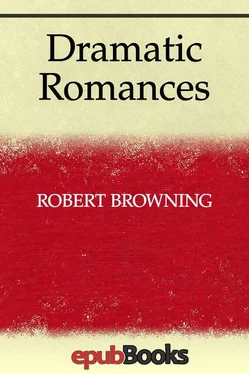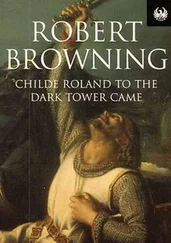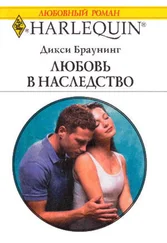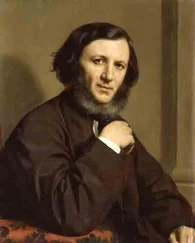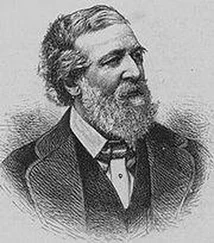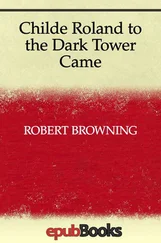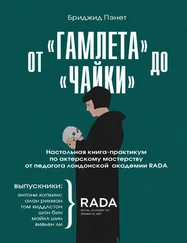Роберт Браунинг - Dramatic Romances
Здесь есть возможность читать онлайн «Роберт Браунинг - Dramatic Romances» весь текст электронной книги совершенно бесплатно (целиком полную версию без сокращений). В некоторых случаях можно слушать аудио, скачать через торрент в формате fb2 и присутствует краткое содержание. Год выпуска: 2014, Издательство: epubBooks Classics, Жанр: Поэзия, на английском языке. Описание произведения, (предисловие) а так же отзывы посетителей доступны на портале библиотеки ЛибКат.
- Название:Dramatic Romances
- Автор:
- Издательство:epubBooks Classics
- Жанр:
- Год:2014
- ISBN:нет данных
- Рейтинг книги:3 / 5. Голосов: 1
-
Избранное:Добавить в избранное
- Отзывы:
-
Ваша оценка:
- 60
- 1
- 2
- 3
- 4
- 5
Dramatic Romances: краткое содержание, описание и аннотация
Предлагаем к чтению аннотацию, описание, краткое содержание или предисловие (зависит от того, что написал сам автор книги «Dramatic Romances»). Если вы не нашли необходимую информацию о книге — напишите в комментариях, мы постараемся отыскать её.
Dramatic Romances — читать онлайн бесплатно полную книгу (весь текст) целиком
Ниже представлен текст книги, разбитый по страницам. Система сохранения места последней прочитанной страницы, позволяет с удобством читать онлайн бесплатно книгу «Dramatic Romances», без необходимости каждый раз заново искать на чём Вы остановились. Поставьте закладку, и сможете в любой момент перейти на страницу, на которой закончили чтение.
Интервал:
Закладка:
Holy–Cross Day is September 14. The discovery of the true cross by Saint Helen inaugurated the festival, celebrated both by Latins and Greeks as early as the fifth or sixth century, under the title of the Exaltation of the Cross and later in commemoration of the alleged miraculous appearance of the Cross to Constantine in the sky at midday. Though the particular incidents of the poem are not historical, it is a fact (see Milman's "History of the Jews'') that, by a Papal Bull issued by Gregory XIII in 1584, all Jews above the age of twelve years were compelled to listen every week to a sermon from a Christian priest.
52. Corso: a street in Rome
67. Rabbi Ben Ezra: or Ibn Ezra, a mediaeval Jewish writer and thinker, born in Toledo, near the end of the eleventh century.
III. Ghetto: the Jew's quarter. Pope Paul IV first shut the Jews up in the Ghetto, and prohibited them from leaving it after sunset.
Protus
Among these latter busts we count by scores,
Half–emperors and quarter–emperors,
Each with his bay–leaf fillet, loose–thonged vest,
Loric and low–browed Gorgon on the breast,
One loves a baby face, with violets there,
Violets instead of laurel in the hair,
As those were all the little locks could bear.
Now, read here. "Protus ends a period
Of empery beginning with a god;
Born in the porphyry chamber at Byzant, 10
Queens by his cradle, proud and ministrant:
And if he quickened breath there, 'twould like fire
Pantingly through the dim vast realm transpire.
A fame that he was missing spread afar:
The world from its four corners, rose in war,
Till he was borne out on a balcony
To pacify the world when it should see.
The captains ranged before him, one, his hand
Made baby points at, gained the chief command.
And day by day more beautiful he grew 20
In shape, all said, in feature and in hue,
While young Greek sculptors, gazing on the child,
Became with old Greek sculpture reconciled.
Already sages laboured to condense
In easy tomes a life's experience:
And artists took grave counsel to impart
In one breath and one hand–sweep, all their art,
To make his graces prompt as blossoming
Of plentifully–watered palms in spring:
Since well beseems it, whoso mounts the throne, 30
For beauty, knowledge, strength, should stand alone,
And mortals love the letters of his name."
—Stop! Have you turned two pages? Still the same.
New reign, same date. The scribe goes on to say
How that same year, on such a month and day,
"John the Pannonian, groundedly believed
A blacksmith's bastard, whose hard hand reprieved
The Empire from its fate the year before,
Came, had a mind to take the crown, and wore
The same for six years (during which the Huns 40
Kept off their fingers from us), till his sons
Put something in his liquor"—and so forth.
Then a new reign. Stay—"Take at its just worth"
(Subjoins an annotator) "what I give
As hearsay. Some think, John let Protus live
And slip away. 'Tis said, he reached man's age
At some blind northern court; made, first a page,
Then tutor to the children; last, of use
About the hunting–stables. I deduce
He wrote the little tract 'On worming dogs,' 50
Whereof the name in sundry catalogues
Is extant yet. A Protus of the race
Is rumoured to have died a monk in Thrace,
And if the same, he reached senility."
Here's John the Smith's rough–hammered head. Great eye,
Gross jaw and griped lips do what granite can
To give you the crown–grasper. What a man!
NOTES:
"Protus" sets in contrast the representations by artist and annalist of the two busts and the two lives of Protus, the baby emperor of Byzantium, born in the purple, gently nurtured and cherished, yet fated to obscurity, and of John, the blacksmith's bastard, predestined to usurp his throne and save the empire with his harder hand.
The Statue and the Bust
There's a palace in Florence, the world knows well,
And a statue watches it from the square,
And this story of both do our townsmen tell.
Ages ago, a lady there,
At the farthest window facing the East
Asked, "Who rides by with the royal air?"
The bridesmaids' prattle around her ceased;
She leaned forth, one on either hand;
They saw how the blush of the bride increased—
They felt by its beats her heart expand— 10
As one at each ear and both in a breath
Whispered, "The Great–Duke Ferdinand."
That self–same instant, underneath,
The Duke rode past in his idle way,
Empty and fine like a swordless sheath.
Gay he rode, with a friend as gay,
Till he threw his head back—"Who is she?"
"A bride the Riccardi brings home to–day."
Hair in heaps lay heavily
Over a pale brow spirit–pure— 20
Carved like the heart of a coal–black tree,
Crisped like a war–steed's encolure—
And vainly sought to dissemble her eyes
Of the blackest black our eyes endure.
And lo, a blade for a knight's emprise
Filled the fine empty sheath of a man—
The Duke grew straightway brave and wise.
He looked at her, as a lover can;
She looked at him, as one who awakes:
The past was a sleep, and her life began. 30
Now, love so ordered for both their sakes,
A feast was held that selfsame night
In the pile which the mighty shadow makes.
(For Via Larga is three–parts light,
But the palace overshadows one,
Because of a crime which may God requite!
To Florence and God the wrong was done,
Through the first republic's murder there
By Cosimo and his cursed son.)
The Duke (with the statue's face in the square) 40
Turned in the midst of his multitude
At the bright approach of the bridal pair.
Face to face the lovers stood
A single minute and no more,
While the bridegroom bent as a man subdued—
Bowed till his bonnet brushed the floor—
For the Duke on the lady a kiss conferred,
As the courtly custom was of yore.
In a minute can lovers exchange a word?
If a word did pass, which I do not think, 50
Only one out of the thousand heard.
That was the bridegroom. At day's brink
He and his bride were alone at last
In a bedchamber by a taper's blink.
Calmly he said that her lot was cast,
That the door she had passed was shut on her
Till the final catafalk repassed.
The world meanwhile, its noise and stir,
Through a certain window facing the East,
She could watch like a convent's chronicler. 60
Since passing the door might lead to a feast
And a feast might lead to so much beside,
He, of many evils, chose the least.
"Freely I choose too," said the bride—
"Your window and its world suffice,"
Replied the tongue, while the heart replied—
"If I spend the night with that devil twice,
May his window serve as my loop of hell
Whence a damned soul looks on paradise!
"I fly to the Duke who loves me well, 70
Sit by his side and laugh at sorrow!
Ere I count another ave–bell,
"'Tis only the coat of a page to borrow,
And tie my hair in a horse–boy's trim,
And I save my soul—but not to–morrow"—
(She checked herself and her eye grew dim)
"My father tarries to bless my state:
I must keep it one day more for him.
"Is one day more so long to wait?
Moreover the Duke rides past, I know; 80
We shall see each other, sure as fate."
She turned on her side and slept. Just so!
So we resolve on a thing and sleep:
So did the lady, ages ago.
That night the Duke said, "Dear or cheap
As the cost of this cup of bliss may prove
To body or soul, I will drain it deep."
And on the morrow, bold with love,
He beckoned the bridegroom (close on call,
As his duty bade, by the Duke's alcove) 90
And smiled, "'Twas a very funeral,
Your lady will think, this feast of ours,
A shame to efface, whate'er befall!
"What if we break from the Arno bowers,
And try if Petraja, cool and green,
Cure last night's fault with this morning's flowers?"
The bridegroom, not a thought to be seen
On his steady brow and quiet mouth,
Said, "Too much favour for me so mean!
"But, alas! my lady leaves the South; 100
Each wind that comes from the Apennine
Is a menace to her tender youth:
"Nor a way exists, the wise opine,
If she quits her palace twice this year,
To avert the flower of life's decline."
Quoth the Duke, "A sage and a kindly fear.
Moreover Petraja is cold this spring:
Be our feast to–night as usual here!"
And then to himself—"Which night shall bring
Thy bride to her lover's embraces, fool— 110
Or I am the fool, and thou art the king!
"Yet my passion must wait a night, nor cool—
For to–night the Envoy arrives from France
Whose heart I unlock with thyself my tool.
"I need thee still and might miss perchance.
To–day is not wholly lost, beside,
With its hope of my lady's countenance:
"For I ride—what should I do but ride?
And passing her palace, if I list,
May glance at its window–well betide!" 120
So said, so done: nor the lady missed
One ray that broke from the ardent brow,
Nor a curl of the lips where the spirit kissed.
Be sure that each renewed the vow,
No morrow's sun should arise and set
And leave them then as it left them now.
But next day passed, and next day yet,
With still fresh cause to wait one day more
Ere each leaped over the parapet.
And still, as love's brief morning wore, 130
With a gentle start, half smile, half sigh,
They found love not as it seemed before.
They thought it would work infallibly,
But not in despite of heaven and earth:
The rose would blow when the storm passed by.
Meantime they could profit in winter's dearth
By store of fruits that supplant the rose:
The world and its ways have a certain worth:
And to press a point while these oppose
Were simple policy; better wait: 140
We lose no friends and we gain no foes.
Meantime, worse fates than a lover's fate
Who daily may ride and pass and look
Where his lady watches behind the grate!
And she—she watched the square like a book
Holding one picture and only one,
Which daily to find she undertook:
When the picture was reached the book was done,
And she turned from the picture at night to scheme
Of tearing it out for herself next sun. 150
So weeks grew months, years; gleam by gleam
The glory dropped from their youth and love,
And both perceived they had dreamed a dream;
Which hovered as dreams do, still above:
But who can take a dream for a truth?
Oh, hide our eyes from the next remove!
One day as the lady saw her youth
Depart, and the silver thread that streaked
Her hair, and, worn by the serpent's tooth,
The brow so puckered, the chin so peaked, 160
And wondered who the woman was,
Hollow–eyed and haggard–cheeked,
Fronting her silent in the glass—
"Summon here," she suddenly said,
"Before the rest of my old self pass,
"Him, the Carver, a hand to aid,
Who fashions the clay no love will change
And fixes a beauty never to fade.
"Let Robbia's craft so apt and strange
Arrest the remains of young and fair, 170
And rivet them while the seasons range.
"Make me a face on the window there,
Waiting as ever, mute the while,
My love to pass below in the square!
"And let me think that it may beguile
Dreary days which the dead must spend
Down in their darkness under the aisle,
"To say, 'What matters it at the end?
'I did no more while my heart was warm
Than does that image, my pale–faced friend.' 180
"Where is the use of the lip's red charm,
The heaven of hair, the pride of the brow,
And the blood that blues the inside arm—
"Unless we turn, as the soul knows how,
The earthly gift to an end divine?
A lady of clay is as good, I trow."
But long ere Robbia's cornice, fine,
With flowers and fruits which leaves enlace,
Was set where now is the empty shrine—
(And, leaning out of a bright blue space, 190
As a ghost might lean from a chink of sky,
The passionate pale lady's face—
Eyeing ever, with earnest eye
And quick–turned neck at its breathless stretch,
Some one who ever is passing by)
The Duke had sighed like the simplest wretch
In Florence, "Youth—my dream escapes!
Will its record stay?" And he bade them fetch
Some subtle moulder of brazen shapes—
"Can the soul, the will, die out of a man 200
Ere his body find the grave that gapes?
"John of Douay shall effect my plan,
Set me on horseback here aloft,
Alive, as the crafty sculptor can,
"In the very square I have crossed so oft:
That men may admire, when future suns
Shall touch the eyes to a purpose soft,
"While the mouth and the brow stay brave in bronze—
Admire and say, 'When he was alive
How he would take his pleasure once!' 210
"And it shall go hard but I contrive
To listen the while, and laugh in my tomb
At idleness which aspires to strive."
Интервал:
Закладка:
Похожие книги на «Dramatic Romances»
Представляем Вашему вниманию похожие книги на «Dramatic Romances» списком для выбора. Мы отобрали схожую по названию и смыслу литературу в надежде предоставить читателям больше вариантов отыскать новые, интересные, ещё непрочитанные произведения.
Обсуждение, отзывы о книге «Dramatic Romances» и просто собственные мнения читателей. Оставьте ваши комментарии, напишите, что Вы думаете о произведении, его смысле или главных героях. Укажите что конкретно понравилось, а что нет, и почему Вы так считаете.
